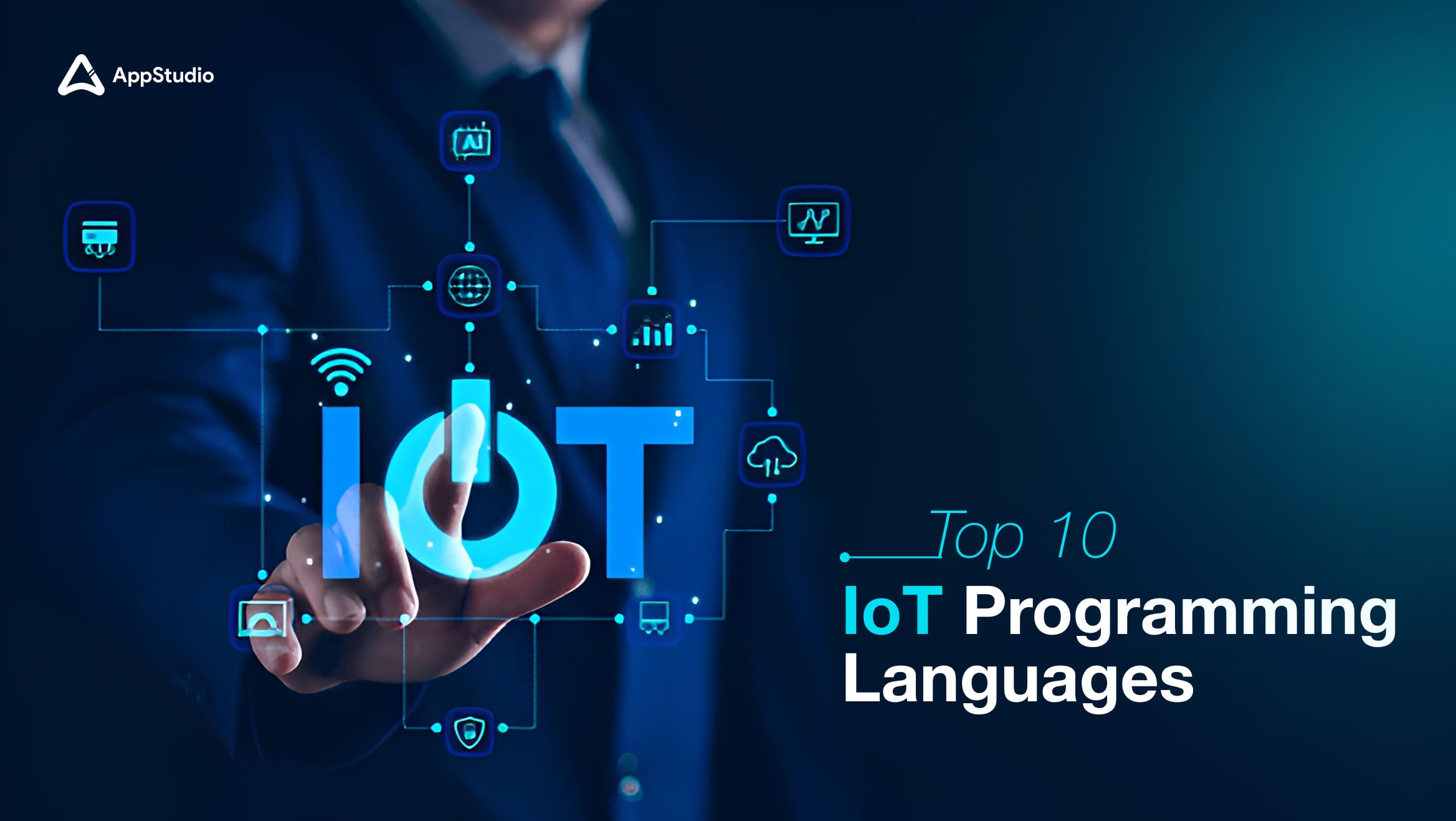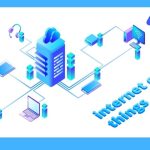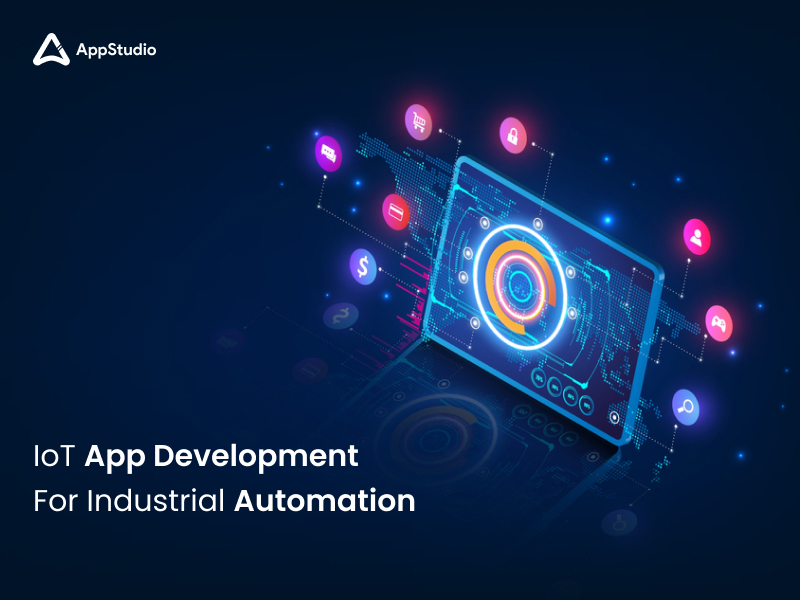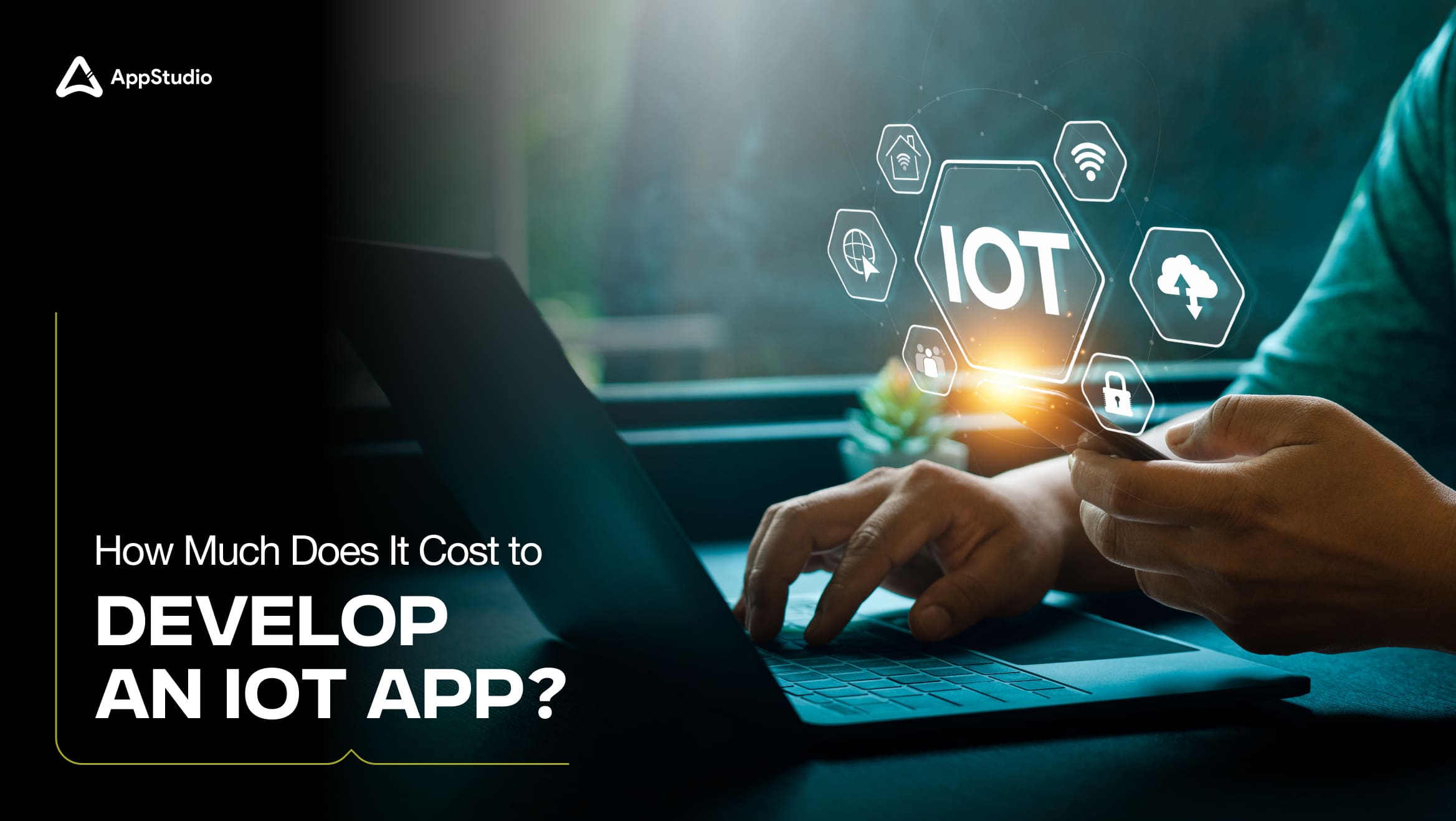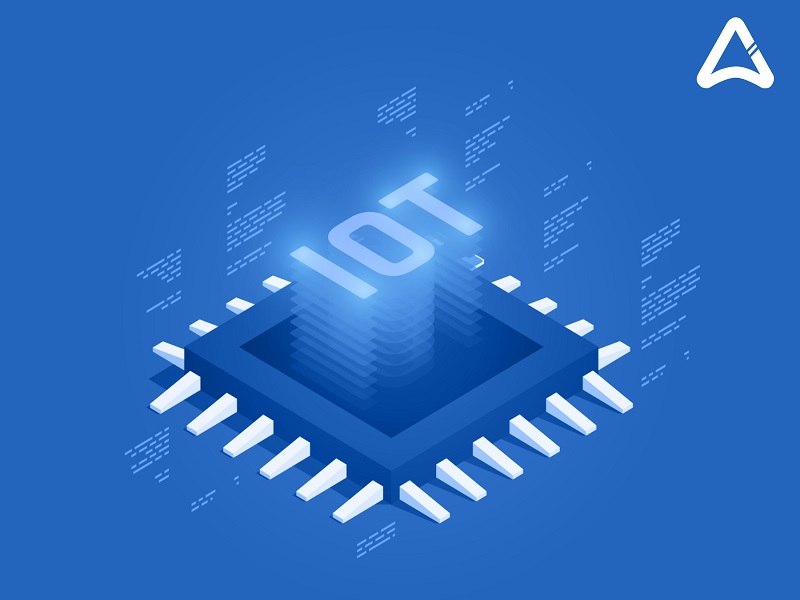The Internet of Things (IoT) has revolutionized how we connect and communicate. As a network of physical objects embedded with sensors and technologies, IoT enables seamless data exchange across devices and applications via the Internet. With increasing IoT solutions entering the market, optimizing software development workflows has become a priority for IoT programming providers.
From selecting suitable cloud environments to designing efficient architecture and programming languages for IoT, developers face several challenges. Among these, the choice of programming language plays a pivotal role in enhancing development workflows. Choosing the best IoT programming language ensures projects are tailored for optimal functionality and efficiency.
This blog will explore the top 10 IoT programming languages you need to know!
How IoT is Transforming the Future of Connectivity
The Internet of Things has revolutionized how we interact with technology. Once a theory has now become a reality! A world where Alexa controls your home, fitness bands track health parameters, and fleets utilize IoT for seamless logistics management!
According to Statista, IoT-connected devices are projected to exceed 25.4 billion by 2030, showcasing its exponential growth. From industrial equipment to household appliances, IoT’s versatility allows devices to communicate seamlessly, exchanging data in real-time.
Beyond mere convenience, IoT delivers measurable benefits:
- Lower production costs and maximize returns.
- Enhanced data security and processing.
- Faster and more accurate analytics.
- Minimal human intervention in daily tasks.
- Superior client experience and real-time marketing.
IoT doesn’t just connect devices—it bridges the gap between processes, people, and technology. By integrating IoT into various industries, we’re witnessing smarter operations, enhanced resource utilization, and a significant boost in efficiency. The journey of IoT is just beginning, and its future holds unparalleled potential.
Related reading: Internet of Things Guide to App Engineering
Technologies Transforming the Future of IoT
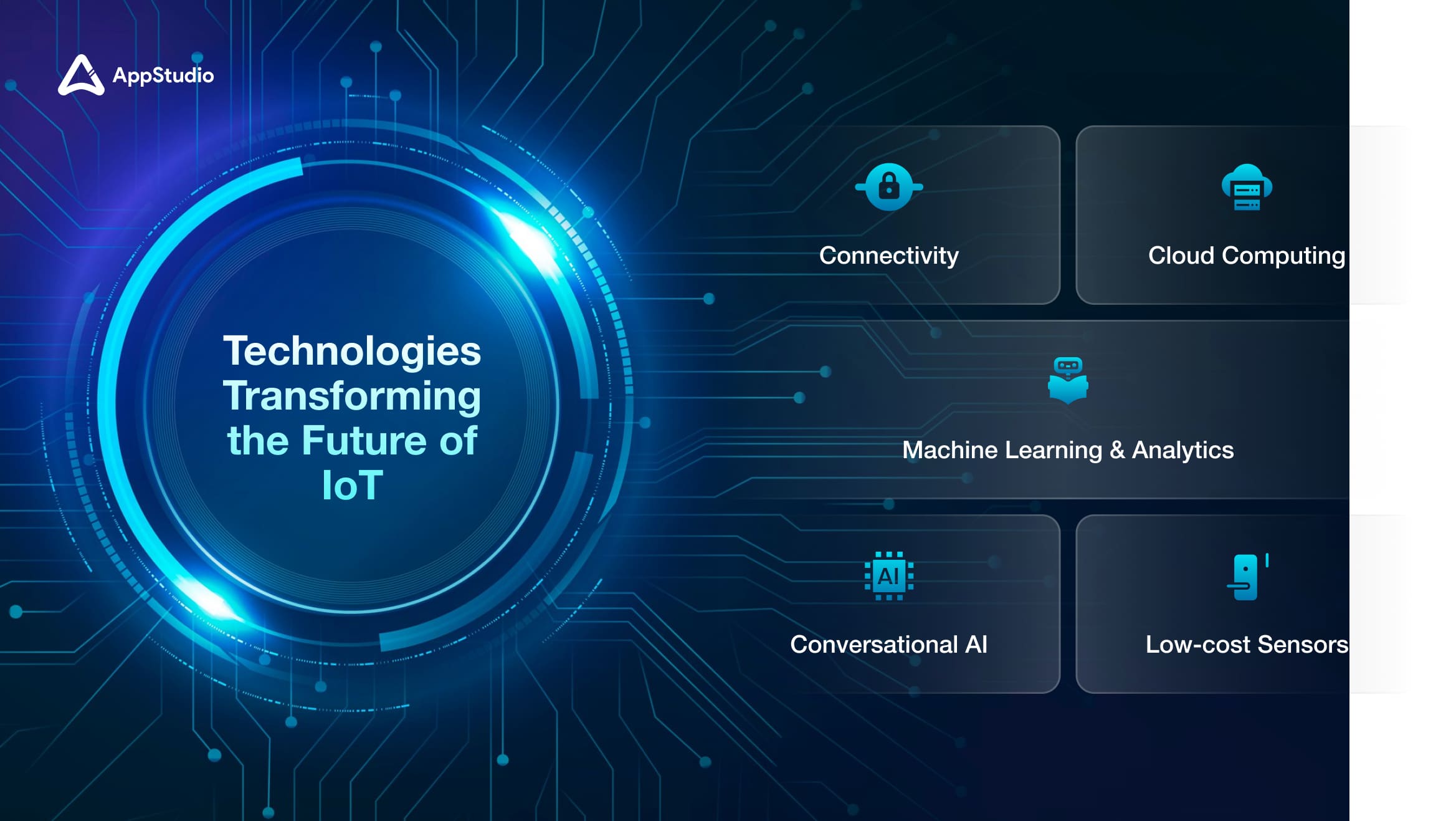
The concept of IoT is not new, but recent technological advancements have made its widespread implementation possible. Here’s a breakdown of key innovations driving IoT forward:
- Connectivity: IoT devices leverage protocols like Zigbee for seamless communication with cloud systems, enabling real-time data transfer. For connectivity and interoperability, JavaScript stands out due to its flexibility and vast developer support.
- Cloud Computing: Cloud platforms revolutionize how IoT devices store and process data. Popular for its simplicity and efficiency, PHP dominates in IoT cloud applications.
- Machine Learning & Analytics: Advanced analytics and ML algorithms empower IoT with predictive capabilities. Python remains the go-to language for its robust libraries and multi-paradigm support.
- Conversational AI: Technologies like natural-language processing elevate IoT solutions (e.g., Alexa, Siri). Python, with its neural network capabilities, dominates in this domain.
- Low-cost Sensors: Efficient sensors powered by IoT reduce costs and improve functionality. C++, with its unparalleled performance, ensures optimal hardware-software integration.
These technologies collectively create a dynamic IoT ecosystem, shaping the future of smart, connected devices.
Related reading: what is an IoT Platform? How is IoT used in the Business?
Best IoT Programming Languages for 2025
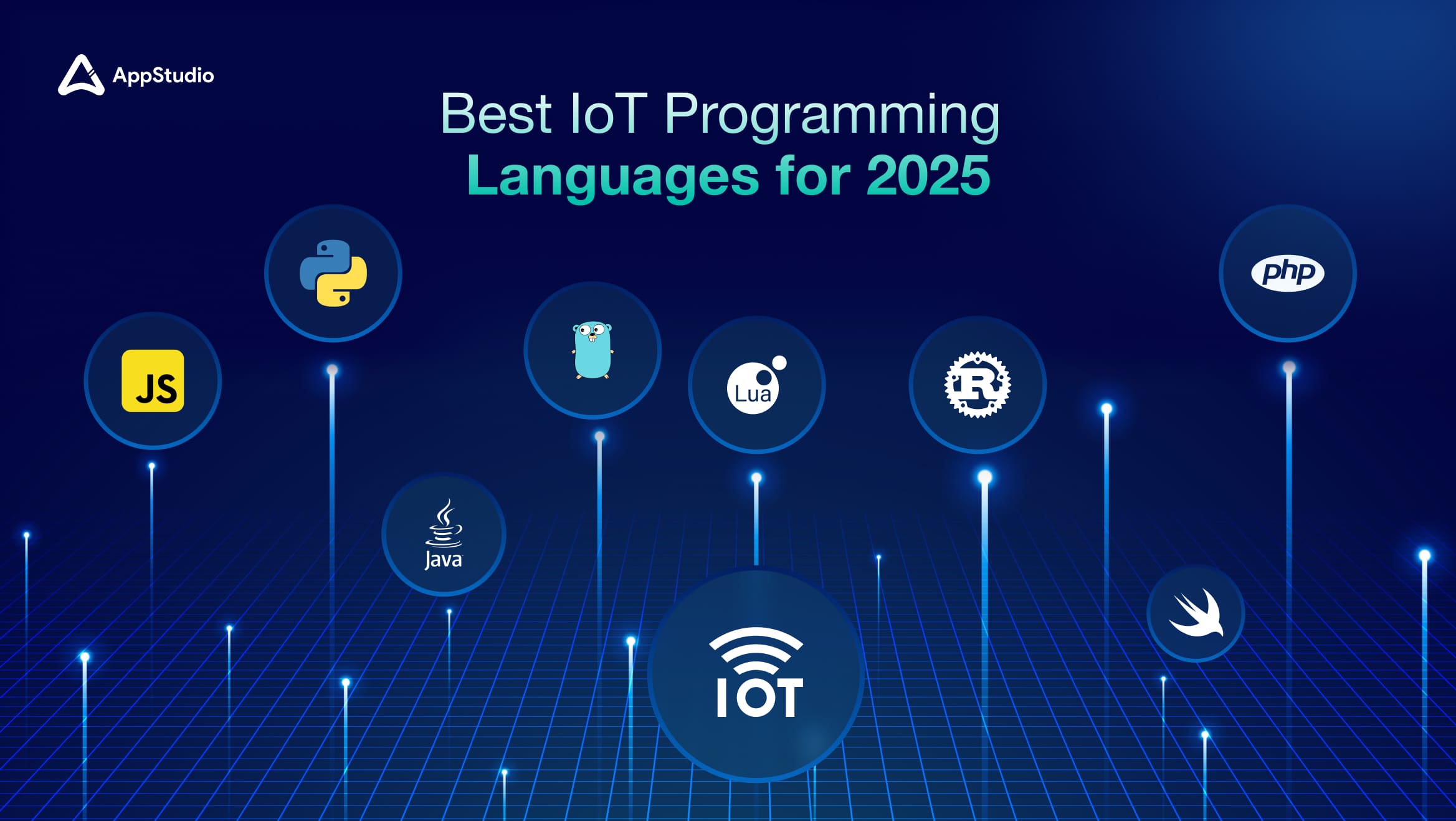
A well-chosen programming language can make or break your IoT project. Below are the 10 best IoT programming languages for 2025, with detailed insights into their strengths and applications:
1. JavaScript
Renowned for its versatility, JavaScript seamlessly bridges IoT projects’ front and back end. Its ability to handle real-time interactions and JSON data makes it ideal for creating dynamic interfaces and communication protocols essential in IoT ecosystems.
2. C/C++
The go-to choice for firmware development, C/C++ provides unmatched performance for resource-constrained IoT devices. Its extensive library support and close-to-hardware functionality ensure efficient processing for embedded systems and sensor integrations.
3. Python
Python’s user-friendly syntax and robust libraries like TensorFlow and Pandas make it indispensable for IoT applications that require data analysis, machine learning, and AI-driven capabilities. It also excels in rapid prototyping and backend processing.
4. Java
A powerhouse for portability and scalability, Java is perfect for embedded IoT systems. Its platform-independent nature and strong security features allow developers to build flexible and secure applications across multiple devices and operating systems.
5. Go
Designed for concurrent processing, Go is ideal for IoT devices handling high data volumes. Its efficiency in managing limited-memory systems and its capability to scale makes it a rising star in IoT development.
6. Lua
A lightweight scripting language, Lua is excellent for real-time IoT applications. Its low memory footprint and speed make it suitable for small-scale devices while allowing easy integration with other languages.
7. ParaSail
Specially crafted for IoT, ParaSail emphasizes parallel processing, which enhances its performance in environments with multiple devices communicating simultaneously. Its reliability makes it a strong contender for complex IoT networks.
8. Rust
Rust offers high-speed performance, memory safety, and concurrency, making it a superior alternative to C/C++ for critical IoT projects. It reduces runtime errors while ensuring efficient hardware utilization, ideal for large-scale IoT deployments.
9. Swift
Best suited for iOS-based IoT applications, Swift combines speed with simplicity. Its modern syntax and seamless integration with Apple’s ecosystem make it a strong candidate for building user-friendly and secure IoT apps.
10. PHP
Though traditionally a web development language, PHP shines in IoT projects requiring backend support. Its simplicity and cost-effectiveness make it suitable for small-scale IoT applications like smart home systems or basic monitoring devices.
These languages offer unique capabilities tailored to different IoT needs, making them critical for driving innovation in connected devices.
Related reading: All about IIoT and Industry 4.0
How to choose the Best Programming Language for IoT?
With numerous popular programming languages available in the IoT landscape, even seasoned developers may find it challenging to select the optimal one for a specific project. Choosing the most efficient language requires understanding the project’s development requirements, hardware compatibility, and functionality to create seamless IoT connectivity.
Here are some key considerations when choosing the programming languages for your IoT application:
- App Purpose: The core functionality of the app and its goals should guide the selection.
- Developer Expertise: The language should align with the skills of the IoT development team.
- Hardware Compatibility: Some languages are better suited to specific microcontrollers and hardware platforms.
- Performance Needs: Real-time processing and low latency requirements may favor specific languages.
- Security: Memory-safe languages can be more secure for IoT applications.
- Scalability and Maintenance: Consider whether the language’s architecture supports long-term growth.
- Community Support and Ecosystem: A strong community and broad library support can accelerate development.
- Interoperability: The language must integrate smoothly with other devices and databases.
- Protocol Compatibility: Support for protocols like MQTT, HTTP, and Bluetooth is essential for device communication.
Choosing the right language is crucial to the success of your IoT project. If you’re uncertain about the best option, contact the IoT experts at Appstudio for guidance tailored to your project’s specific needs.
Why Choose AppStudio for Your IoT Development Needs?
We specialize in creating high-performance IoT applications tailored to meet your business requirements. Our team has extensive experience with IoT solutions across various industries, from concept design to product deployment. By integrating innovative technologies with advanced programming languages, we ensure your IoT project is optimized for connectivity, data handling, and scalability.
Our developers stay ahead of the curve, selecting the most suitable languages and frameworks for your project’s unique requirements. Whether it’s enhancing user experience, maintaining secure data protocols, or ensuring compatibility with diverse hardware, AppStudio has the expertise to bring your IoT vision to life.
Ready to build a cutting-edge IoT solution? Contact us today to start your journey.
Related reading: Benefits of IoT App Development for Industrial Automation
Wrapping Up
The IoT landscape is rapidly expanding, offering endless commercial, government, and industrial opportunities. The purpose of IoT apps is to transmit, collect, analyze, and store data to enhance customer experiences and improve product quality. Consequently, IoT development will continue to grow, offering ample room for innovation and improvement.
Achieving success with IoT projects hinges on selecting the right programming languages. While language trends may shift, keeping pace with them is challenging. This is where partnering with an experienced IoT development company becomes invaluable. With their expertise in various IoT programming languages and hands-on experience, they can help steer your project in the right direction.
As IoT solutions become increasingly integrated into daily life, their importance will continue to rise. AppStudio’s team of IoT experts is here to help you navigate your IoT project efficiently and effectively. Contact us today to explore how we can transform your IoT goals into reality.
Frequently Asked Questions
The most popular programming languages used in IoT include Python, C/C++, Java, and JavaScript. Python is widely favored for its simplicity and extensive libraries, making it ideal for prototyping and machine-learning applications. C and C++ are preferred for embedded systems due to their efficiency with memory and hardware. Java provides strong cross-platform support, and JavaScript is excellent for IoT web interfaces, bringing flexibility to IoT projects.
Selecting the right programming language for IoT development is crucial to meeting an IoT project’s specific performance, scalability, and security needs. Different programming languages for IoT development, such as C, C++, Python, Java, and JavaScript, each offer unique advantages. Some, like C and C++, are better suited for real-time data processing, while others, like Python, offer strong security features and are versatile for different applications. Java and JavaScript, on the other hand, integrate easily with web and mobile platforms. The ideal language choice ensures optimized performance, efficient power consumption, and smooth communication between devices, helping your IoT solution succeed and seamlessly meet project requirements.
AppStudio’s experienced team assesses each project’s unique needs, including hardware compatibility, performance goals, and security requirements, to recommend the ideal programming language. We factor the project’s functionality, scalability, and long-term maintenance needs. Our expertise across multiple Internet of Things languages ensures that the language chosen aligns perfectly with your objectives, enhancing project efficiency and ensuring seamless device-to-device communication within your IoT ecosystem.
Yes, AppStudio provides a comprehensive approach to IoT development, supporting both hardware and software integration. Our team ensures that hardware components work seamlessly with the software, from firmware programming to backend system design. We understand the importance of compatibility, reliability, and security in IoT ecosystems, and we focus on delivering a solution that operates smoothly across all devices, creating a cohesive and robust IoT network.
Security is a top priority at AppStudio. We implement multiple security layers to safeguard IoT applications, including secure coding practices, encryption protocols, and data authentication measures. Our team is experienced in identifying and mitigating vulnerabilities, protecting data from unauthorized access, and ensuring compliance with industry standards. This approach ensures that your IoT solution is resilient, safeguarding sensitive information and maintaining high levels of data integrity.
AppStudio has developed a range of IoT applications across various industries, including healthcare, smart home automation, and industrial monitoring. Our expertise spans from wearable devices that track health metrics to home automation systems and industrial sensors for real-time data collection. By leveraging our vast experience, we deliver IoT solutions that are reliable, scalable, and tailored to meet each client’s specific industry and operational needs.
